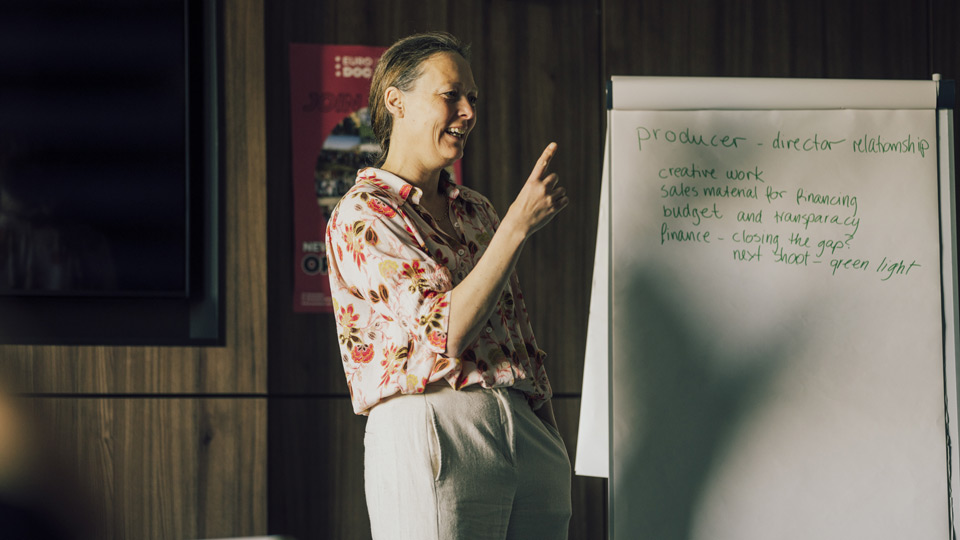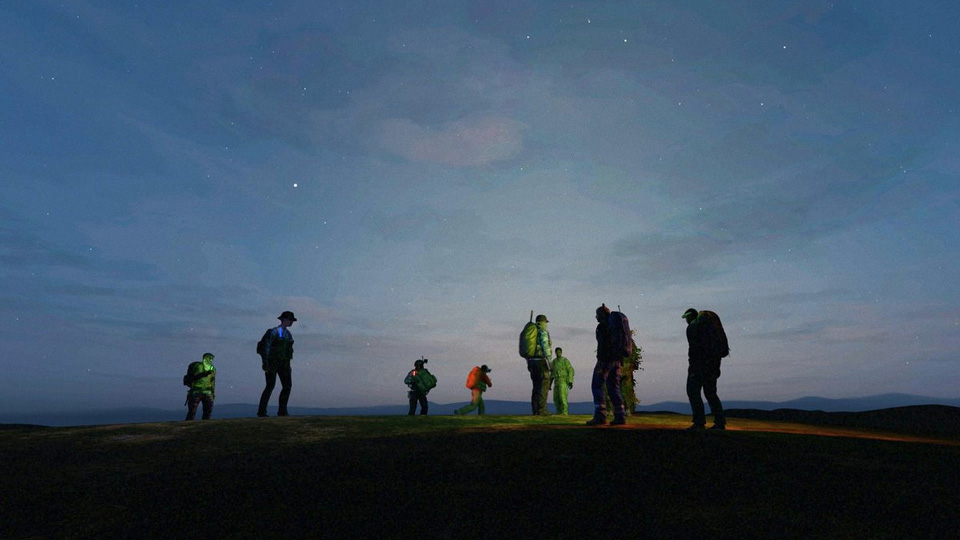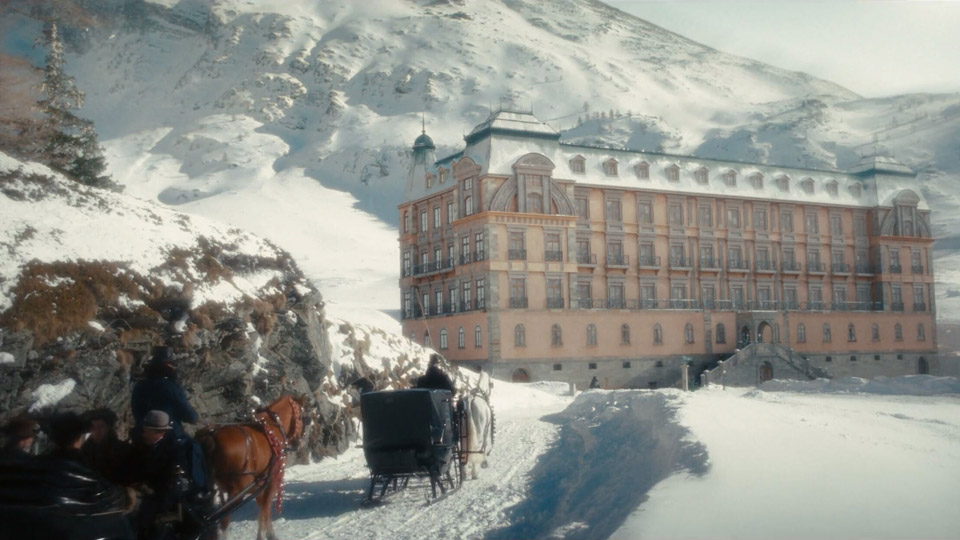Why was EURODOC created 25 years ago?
Nora Philippe : EURODOC was born under the leadership of two French producers, Jacques Bidou and Anne-Marie Luccioni. Both already had a solid background in the European and international co-production sector. They had among other things participated in the European Audiovisual Entrepreneurs (EAVE) program, dedicated mainly to fiction producers. Back then, Europe’s cultural project was rapidly expanding and bringing about major change in the audiovisual landscape. The Franco-German channel Arte was developing in this changing landscape, but nothing existed yet in terms of training in documentary production in an international perspective. EURODOC originates from this context: Jacques Bidou and Anne-Marie Luccioni decided to support the cultural and cinematographic part of the European project by providing documentary producers with the means to fit into it (legal expertise, financial expertise, etc.) and a network of professionals with whom to produce and co-produce in Europe. The objective was clear from the start: to address producers who are developing a feature-length documentary project, who want to learn how to co-produce internationally and who want to see creative documentaries exist on television and not just in theaters. In its methodology, the program has always trained professionals through a pragmatic, transgenerational and transnational approach.
How has such a program been implemented?
Very quickly, Jacques Bidou and Anne-Marie Luccioni were joined by other peers mainly from Western Europe (Austria, Germany, Portugal, Belgium, etc.). This emerging consortium was shaping a new space for creation and collaboration, which grew more each year. From its beginnings, the program was designed to be itinerant in order to adapt to national and transregional European realities. EURODOC has never stopped being attentive to change on the continent and the way documentary maps have been reshaped over the course of European construction. When the European Union welcomed new members, the EURODOC teams paid particular attention to integrating professionals from these countries into the program and especially professionals from countries classified as LCC (Low capacity countries, i.e. countries with low production capacity). In this endeavor, EURODOC has benefited from the major support of the MEDIA Creative Europe program, its most important financial partner for twenty years.

What kind of training does EURODOC provide?
The flagship program is a one-year selective program spread over eight months. It takes the form of three residency sessions in three countries: the first is dedicated to the development phase of the film project, the second to the design of its production and co-production strategy, the third to professional meetings. Each session lasts a week and now brings together three groups: the French-speaking group tutored by French producer Jean-Laurent Csinidis (Les Films de Force Majeure), the English-speaking group led by German producer Heino Deckert (Ma.ja.de) and the Spanish-speaking group, created this year, mentored by Argentine producer Gema Juarez Allen (Gema Films). The first session of the 2024 program took place in March, in Weimar (Germany) with the support of the MDM regional fund; the second took place in June in Edinburgh (Scotland) in partnership with Screen Scotland and the Scottish Documentary Institute; the third will be held in October, in Lille (France), with the support of Pictanovo. This new edition brings together 40 participants, 70% of whom are European and 30% non-European. In total, 23 nationalities and 4 continents are represented. This cultural diversity is also made possible by regional or national funds, which renew each year their support to the training of their own sector. Today, the EURODOC network has around 1600 members from 75 different countries.
How do you select participants?
The EURODOC selection committee – made up of our tutors and guest producers – decides on the basis of the project’s artistic merit and international distribution potential. Among the other eligibility requirements: candidates must have produced at least a feature-length documentary as an associate production. All participants are at a pivotal moment in their career (producers from production companies that are well-established in the cinematographic landscape who decide to start their own venture; producers from the audiovisual sector wishing to defend a more cinematic editorial approach, etc.) The documentary genre and its financing being infinitely plural and complex, we are keen to diversify the profiles and production patterns within the cohorts: business managers, independent producers, producers with a commercial streak or a thirst for animation, producers coming from countries that lack solid infrastructures or institutions in this area…
EURODOC also offers short training courses. What do they consist of?
There are two types of programs: on one hand local workshops, on the other hand those focused on specific geographies. All last a week and welcome between 12 and 14 participants, including representatives of institutions and media who come to train. Local workshops are held in parallel with our annual program and allow producers from the program's host countries to follow the session organized in their country. As for those dedicated to particular geographies, we offer the EURODOC MED and EURODOC CARAÏBE workshops. The first targets producers from the north and south shores of the Mediterranean, in partnership with Corsica.doc in Ajaccio; we work to create synergies between the Arab world and the southern regions of France and Europe, because the expertise and cooperation networks are specific there. The second notably aims to address, on our scale, the lack of representation of the Caribbean on the international documentary market. Ambitious documentary projects are being developed there, especially since it is a key region in the global history of recent centuries. Located between North America and South America, with multiple European ties, the region has incredible co-production potential. Among our training courses, we also offer an online program in support of the annual program whose aim is to deepen specific topics such as eco-production, impact production, career development, uses and innovations of generative AI, the production of films with archive images…
How does the tutoring system set up by EURODOC work?
The tutors in our annual program are very experienced producers and EURODOC alumni. At the same time, in local workshops, we choose to invite tutors based on their production experience in the region and their cultural and linguistic ties. Remember that EURODOC is a polyglot training course available in several languages (French, English and Spanish), which also offers individual counsel in Arabic, Portuguese, German or Italian.
EURODOC recently teamed up with the Series Mania Institute to create a workshop dedicated to documentary series. Why is it important to support one’s co-production through specific training?
This workshop was born from several observations at EURODOC, in the global documentary ecosystem and at the Series Mania Institute. In recent years, we have indeed received more and more applications for series projects. Some feature film projects have also been transformed into series during the development work done in our workshops. At the same time, during our short workshops carried out on demand, in particular when it comes to documentaries produced for platforms (Instagram, Snapchat, YouTube, Discord, etc.), we observed a multitude of very diverse projects regarding formats and tones. We are currently in an extraordinary period of invention. Moreover, the public's appetite for this format needs no further proof: documentary series have grown to become a market per se for platforms and television channels, which are looking for content to produce and co-produce. However, the production of a documentary series requires large teams (screenwriters in particular) and substantial budgets and logistics. And in the case of an international co-production, the collaboration between broadcasters is also specific. Therefore it is an exercice that requires a good grasp, especially within a constantly evolving market. Producers need to strengthen their tools to emphasize the fact that documentary series are a space for innovation and creation, and also conducive to any process (including direct cinema, observational cinema), any type of story and topic (and not just minor news items, personalities or sports…).

Can you give us an outline of this workshop?
The training is open to French speakers and will be held in September into the Series Mania Institute’s offices, in Lille. French producer Elodie Polo Ackermann (Imagissime) will provide tutoring. During the workshop, development, production and co-production strategies will be discussed on the basis of practical projects, and there is a distinctive feature: broadcasters will be present throughout the program to meet the participants and present their documentary policy to them. We will also invite mentors like French director Ovidie, who will present her web series “Libres!’’, a good example of a particularly innovative documentary series serving the public interest.
How would you explain the uniqueness of documentary co-productions and specifically at the EURODOC network’s level?
Over the years, within our programs, we have observed different co-production strategies depending on the production profiles, the countries of origin and the projects being developed. It can obviously be a matter of survival for producers from countries with low production capacity, or in a context of conflict such as Ukraine currently; it can also be a distribution strategy, since data shows that a film co-produced internationally is more likely to see international distribution. But the producers who join EURODOC bring with them a multicultural outlook, which we highlight. These professionals do not co-produce only for financial reasons – money talks of course – but to give a transnational ambition to their work and films. Finally, we constantly pay attention to ethics and the balance of forces in co-productions, particularly when it comes to North-South co-productions, and we actively work to ensure that EURODOC is a laboratory of ideas and good practice on the subject (including by strengthening tools and networks specific to South-South co-productions).
How many co-productions have emerged from the EURODOC network?
More than 320. Around 50% of them were selected in major festivals and 30% won awards, among which: “The Mother of All Lies’’ by Asmae El Moudir (Insightfilms, Fig Leaf Studio), which won the Un Certain Regard Directing Prize and the Golden Eye Documentary Award at Cannes in 2023. The award also went to “Four Daughters’’ by Kaouther Ben Hania – whose film “Challat of Tunis’’, produced by Habib Attia and co-produced by Julie Paratian, had been developed at EURODOC. I am also thinking of “Knit’s Island’’ by Ekiem Barbier, Guilhem Causse and Quentin L'helgoualc'h [1] (Les Films Invisibles), awarded at the Rencontres Internationales du Documentaire de Montréal (Canada) and at Visions du Réel (Nyon) in 2023. I would also like to mention two Ukrainian EURODOC projects which recently had their world premiere: “A Picture to Remember’’ by Olga Chernykh (Real Pictures and Lu Films) at IFDA Amsterdam in 2023 [which benefited from the European Solidarity Fund for Ukrainian Films – Editor’s note], and “Intercepted’’ by Oksana Karpovych (Hutong Productions, Les Films Cosmos, Moon Man) at the Berlinale 2024. Many EURODOC co-productions have also benefited from the CNC and the French Institute’s ACM Distribution Fund, like the recent French-Georgian co-production “Kartli’’ by Tamar Kalandadze and Julien Pebrel (Sakdoc Films, Habilis Productions). Cooperation between foreign and French professionals have always been part of EURODOC’s DNA.
Quels chantiers attendent EURODOC prochainement ?
There are many, reflecting the constant evolution of our sector. We plan to replicate the workshop dedicated to documentary series next year. We are working to renew the EURODOC MED and EURODOC CARAÏBE programs with new partners. We want to expand our short and online programs, and offer more language versions. We are also offering, for the first time in the history of EURODOC and in partnership with Festival Scope, free access to films that went through our program, along with online meetings with the teams. We continue to strengthen our policy of awarding grants for producers from LCC countries in Europe, and for professionals from ACP (Africa-Caribbean-Pacific) countries. Even though all recent surveys show a growing and multifaceted need for training, professionals say and we note that the majority of them encounter significant financial obstacles to training. Producing documentaries is a profession that requires more and more skills and knowledge: in the same day you can be a script consultant, lawyer, psychologist, accountant, salesperson, diplomat, advisor on harassment and sexual and gender-based violence, eco-manager, employer of course, guarantor of diversity and inclusion, as well as the leader of your company… We are integrating more and more modules on our field’s eco-responsibility and decarbonization, on the means of fighting discrimination in our sector, on strategic career planning and also on mental health, which is an important issue in our professions. Our mission is to train and network professionals who will represent, and defend, the huge diversity of documentaries to audiences in Europe and around the world.
EURODOC benefits from the support of the CNC.





